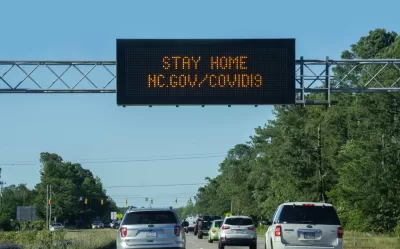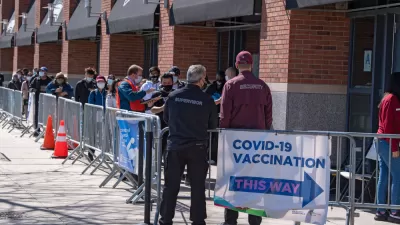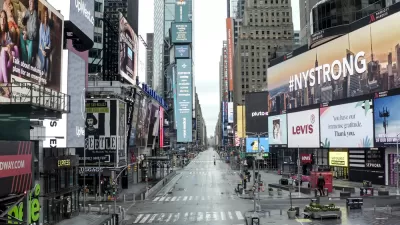Impacts from the COVID-19 pandemic are reverberating through cities around the world. The Penn Institute for Urban Research asked 20 urban experts what the lasting effects will be and how we can rebuild equitably and sustainably.

Impacts from the COVID-19 pandemic are reverberating through cities around the world. Many cities have been hit hard. The response to the pandemic—the shuttering of physical gathering places and a doubling-down on technological stand-ins—has disrupted urban systems, distorted economies, and upended the lives of the over 4 billion people who live and work in cities worldwide. These impacts have been greatest on the most vulnerable: rates of extreme poverty are growing around the world and, here in the U.S., already disadvantaged communities face higher infection and mortality rates and rates of job loss. There is no question that cities will change as a result of the COVID-19 pandemic. The question is: What will be the lasting effects of the pandemic on urban life and urban systems? Given these and the pandemic’s effects on vulnerable populations in cities, how do we rebuild equitably and sustainably?
These are the questions we asked of our respondents for Expert Voices, our annual e-newsletter for which we ask experts to reflect on a question of importance to cities. Their answers touch on a range of tactics and approaches, from policy proposals to broad attitudinal shifts. One theme that underlies them all is the belief that cities are essential. While our experts are realistic about the many challenges that cities face, they are also confident that cities themselves—agglomerations of people and commerce, ideas and innovation—hold the keys to overcoming these challenges. Even those who foresee smaller cities in the future are confident that cities aren’t going anywhere. In fact, they are necessary for a better future. The ideas in these essays show the way.
FULL STORY: Expert Voices 2021: What Will Be the “New Normal”?

Alabama: Trump Terminates Settlements for Black Communities Harmed By Raw Sewage
Trump deemed the landmark civil rights agreement “illegal DEI and environmental justice policy.”

Planetizen Federal Action Tracker
A weekly monitor of how Trump’s orders and actions are impacting planners and planning in America.

The 120 Year Old Tiny Home Villages That Sheltered San Francisco’s Earthquake Refugees
More than a century ago, San Francisco mobilized to house thousands of residents displaced by the 1906 earthquake. Could their strategy offer a model for the present?

In Both Crashes and Crime, Public Transportation is Far Safer than Driving
Contrary to popular assumptions, public transportation has far lower crash and crime rates than automobile travel. For safer communities, improve and encourage transit travel.

Report: Zoning Reforms Should Complement Nashville’s Ambitious Transit Plan
Without reform, restrictive zoning codes will limit the impact of the city’s planned transit expansion and could exclude some of the residents who depend on transit the most.

Judge Orders Release of Frozen IRA, IIJA Funding
The decision is a victory for environmental groups who charged that freezing funds for critical infrastructure and disaster response programs caused “real and irreparable harm” to communities.
Urban Design for Planners 1: Software Tools
This six-course series explores essential urban design concepts using open source software and equips planners with the tools they need to participate fully in the urban design process.
Planning for Universal Design
Learn the tools for implementing Universal Design in planning regulations.
Clanton & Associates, Inc.
Jessamine County Fiscal Court
Institute for Housing and Urban Development Studies (IHS)
City of Grandview
Harvard GSD Executive Education
Toledo-Lucas County Plan Commissions
Salt Lake City
NYU Wagner Graduate School of Public Service





























